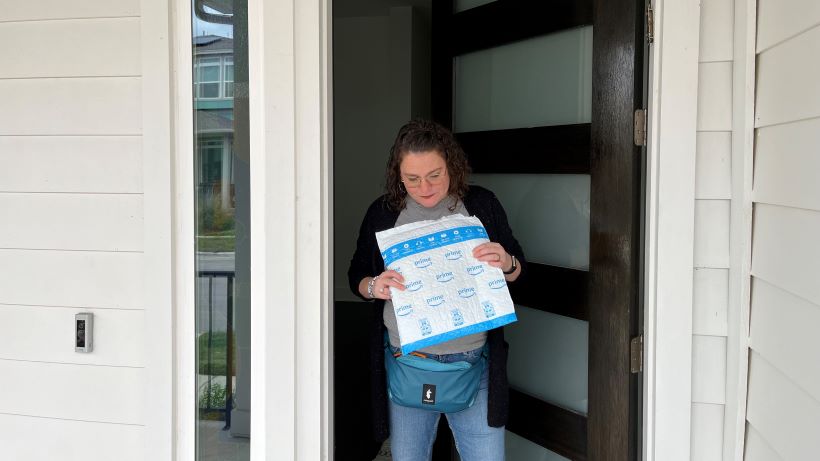I might have an online shopping problem. At first, when everyone was on lockdown, online shopping was a necessity. That’s how our family got the things we needed, like clothes, shoes, and art supplies and still felt safe from contracting COVID-19. We’re fortunate to be able to have done a lot of online shopping. Despite supply chain issues, thanks to expedited delivery systems, we all got used to the instant gratification of click, order, receive. The dopamine rush of waiting for a package to arrive and then opening it was both addicting and short-lived. These days, if something takes longer than a day or two to arrive, we all start to twitch in frustration just a little.

It makes sense that we eventually take for granted whatever technology makes things easier and faster, and we simply become accustomed to getting what we want, when we want it. On the other hand, over the years we also risk losing our tolerance for a slightly slower pace of life. There’s a balance between acquiring the things we need in a timely fashion and having the patience to wait for them. To stay grounded requires that balance in our lives, and Jacob, the main character in this week’s Torah portion, learns this lesson . . . and without the benefit of Amazon Prime.
Parshat Vayetzei is the beginning of the vivid dream sequences that lead us through the next phase of our Torah cycle. The text picks up with Jacob on his journey away from his parents’ house to meet his cousin, Lavan, and the strange dreams and encounters he has with godly creatures along the way. He ends up falling in love with Rachel, and he works for her hand in marriage, but ends up being tricked into marrying Rachel’s older sister Leah. Fast forward a few more years of work, and the prize of having Rachel as his wife is realized. The text continues with the birth of Jacob’s large family and Jacob’s journey away from his father-in-law Lavan to a new home.
We knew Jacob was a dreamer. At the beginning of the Torah portion, he dreams of a ladder that connects the heavens to the earth. This dream is the one from which he awakes and proclaims, “Wow! God is here and I wasn’t aware.” Jacob is deeply connected at this moment to the gratitude of being safe and present. Later, however, Jacob dreams about increasing the number of sheep and goats that he owns. An angel comes and reminds him of who he used to be. Under the presence of Lavan, his father-in-law, Jacob was corrupted by power and material resources. He lost the connection to his humble roots and his faith in God’s providence.
This Torah portion is a humble reminder not to get carried away by newfound leisures or conveniences. We might not all get such revelatory messages in our dreams, but it’s just as important that we remain grounded. Of course it’s only human to have desires and wants, but it’s also human to find and remain in balance with the world around us. We too can be dreamers, as long as we don’t forget our reality along the way.



